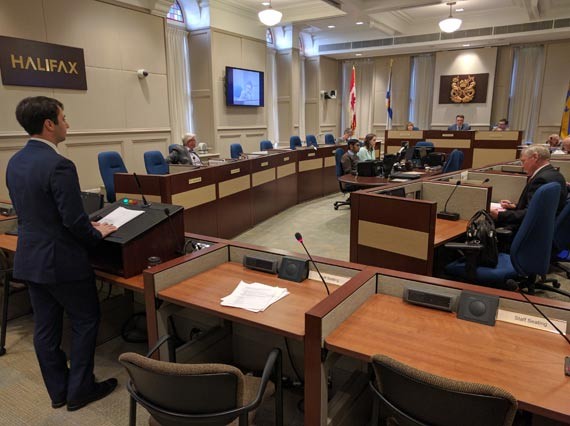
The global movement towards open government is gathering momentum. The Open Government Partnership, an intergovernmental movement which aims to make governments more open, accountable and responsive to citizens, now includes 69 participating countries. Open data websites are cropping up in countries as diverse as Tanzania, the Philippines and Trinidad and Tobago. When India launched its national Open Data Platform in 2013, it made available 3,500 datasets from 49 government departments. Today, it has grown to include nearly 25,000.
Canada's federal government, a frequent target of criticism over the last decade for its lack of transparency, launched an open data portal in 2011, which hosts 245,247 data sets.
In February, the global tide of open government finally reached Nova Scotia, with the launch of the province's Open Data Portal, which now hosts 310 data sets. There is no question that the launch of the province's Open Data Portal is an important step in the right direction. At the same time, Nova Scotia's relatively late entry into the game means it has a lot of catching up to do. This is made more challenging by the fact that open data is a moving target, with new information continually being created. However, while building to the levels of openness currently seen in British Columbia or India will undoubtedly take time, the province can do more to consult with the public in determining which information should be prioritized for release.
Beyond expanding the level of information that is available on the Open Data Portal, there is also a strong need to improve contracting transparency. The province's procurement and tendering database currently provides only a bare minimum of information. Better practice jurisdictions routinely publish information not only about the contract that was awarded but about competing bids, including specific cost breakdowns and information about the criteria used in awarding decisions.
The government also needs to take steps to improve our antiquated access to information system. This was a key campaign promise by Stephen McNeil in the 2013 election. The premier had a change of heart, however, and decided the current system works fine. In 2015, Newfoundland and Labrador overhauled its right to information system, turning the province from a laggard into a world leader. Even at the federal level, things seem to be improving. This month, Canada announced that all fees beyond the $5 application fee would be waived for access requests, and that a full review of the law would take place no later than 2018. If the government follows through on the reform proposals Justin Trudeau floated during the 2015 election, the result will be a transformative improvement.
While Nova Scotia's Open Data Portal is a step forward, it is a baby step, especially compared with the changes taking place elsewhere. Canadians enjoy a constitutional right to information of public importance. International experience demonstrates that a strong right to information provides a number of benefits, including strengthening democratic accountability, improving policy-making and epromoting economic development. To harness these benefits, we need bold policy improvements. It is past time for Nova Scotia to fully embrace the power of open government.
